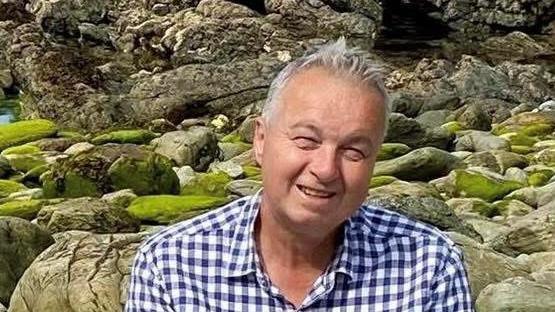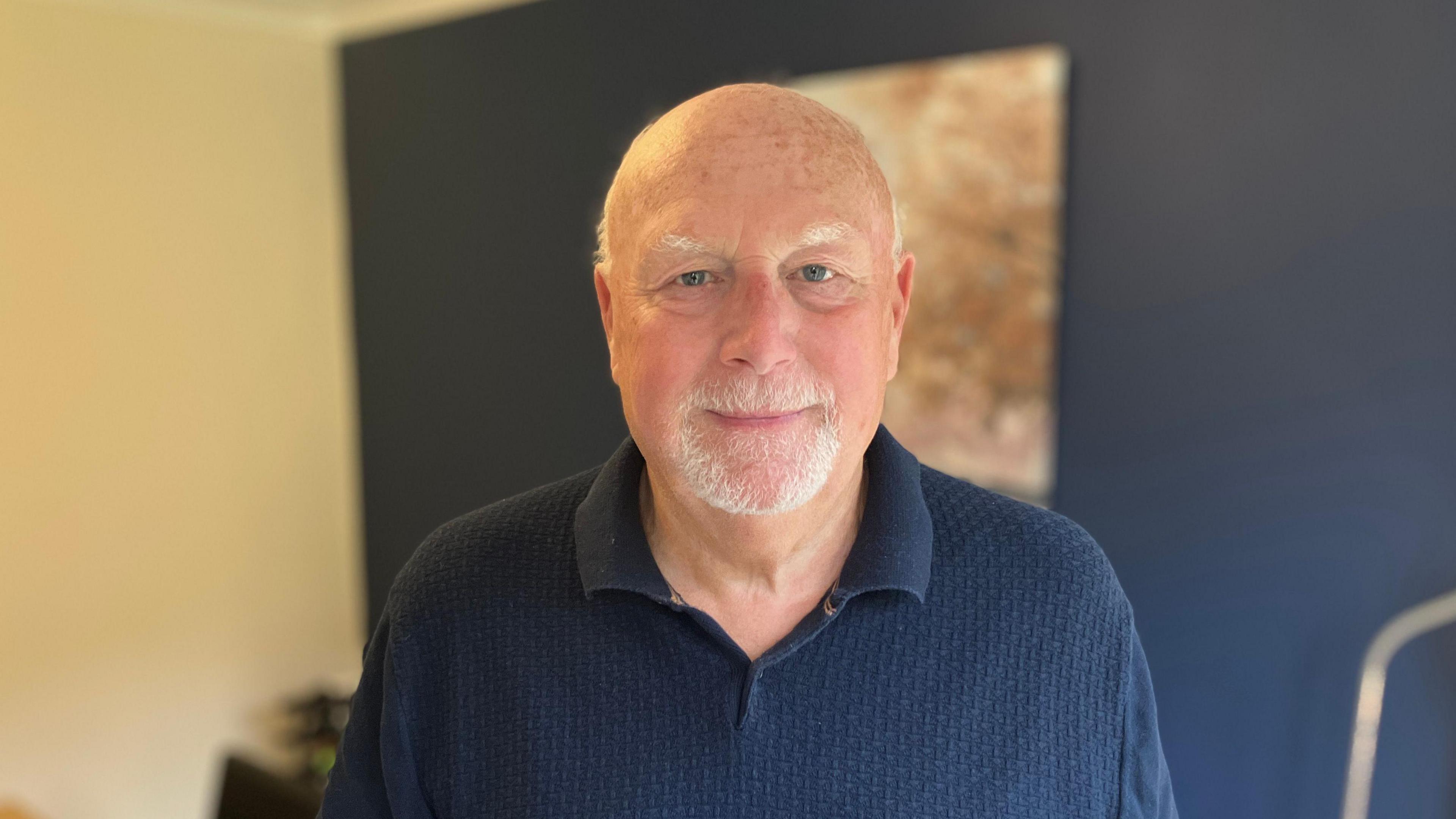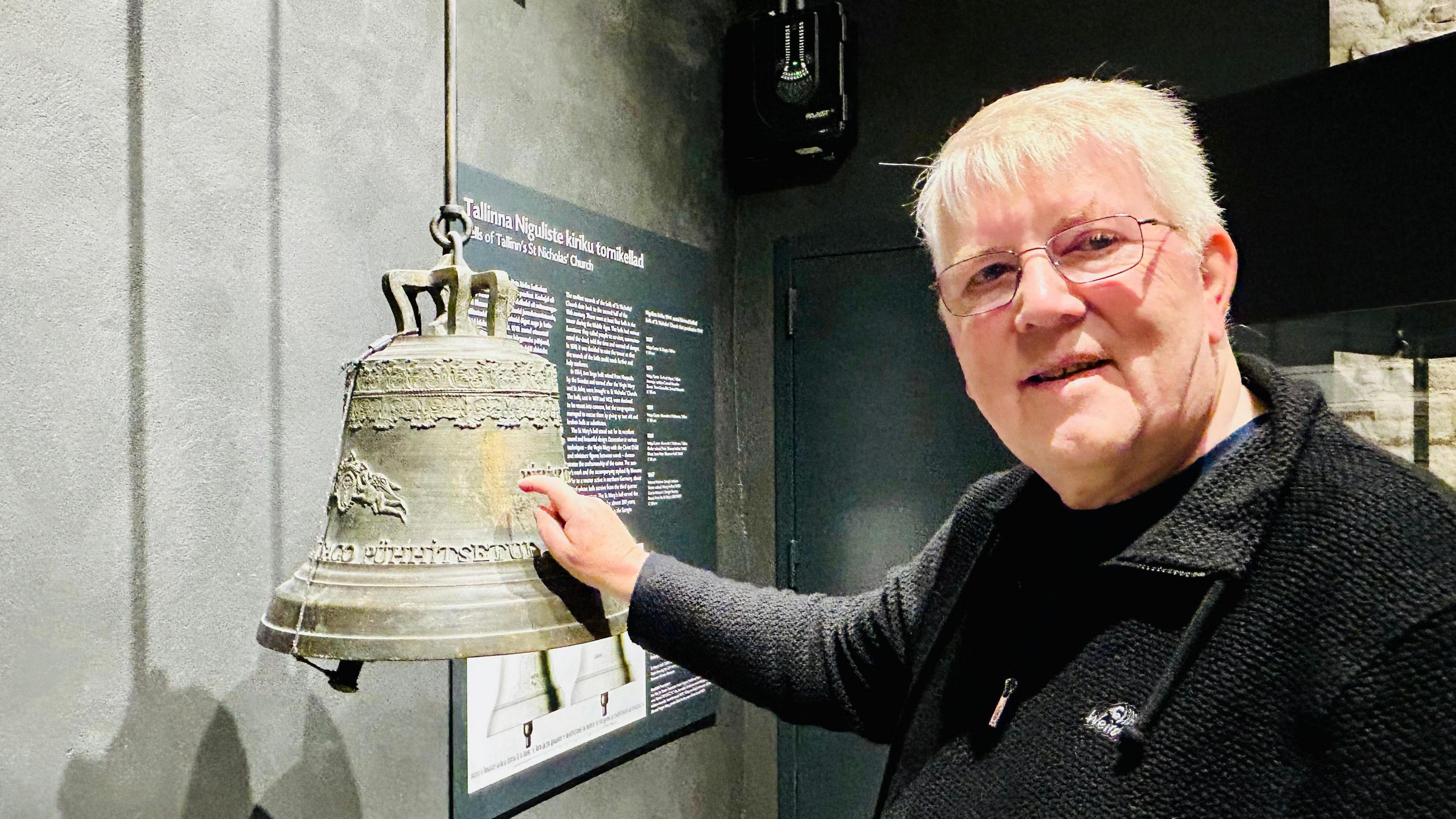'I will die because of a lack of prostate cancer screening'

Grant Aldred said he was not aware that his parents' cancers meant he was at higher risk
- Published
A prostate cancer patient has said that he would likely survive the disease had a screening programme been available when he was younger.
Grant Aldred, from Scarborough, was 56 when he was diagnosed, but said that if the cancer had been caught through testing six years earlier, he would have been able to have life-saving surgery.
He was speaking as former prime minister Rishi Sunak, a Prostate Cancer Research patron, called for a targeted screening programme for men in high-risk groups.
The charity has published a report recommending a scheme to focus on black men and those with a family history of the disease aged between 49 and 69. The £25m annual expenditure would cover MRI scans, blood tests and biopsies.
Mr Aldred, now 58, said screening was "just so important".
He said it had been pure chance that he had asked his GP for a PSA blood test during a routine appointment and he had to push to have one. The procedure screens for proteins made by the prostate gland, and higher levels can indicate cancer.
"I was diagnosed at 56 but if I'd had a PSA at 50 I probably could have had my prostate out and lived a normal life.
"A lack of a screening programme, to put it dramatically, will lead to my death."
The prostate is a walnut-shaped gland at the base of the bladder that naturally grows with age, but can sometimes become cancerous when cells grow in an uncontrolled way.
'Incurable but treatable'
Mr Aldred said he had not been aware he was at higher risk due to a family history of cancer.
"If I had known about the family links I probably would have pushed for a PSA test earlier," he said.
He only learned about the risk when he received the results of his scans, when he was told the cancer had spread to one of his lymph nodes.
He was told it was "incurable, but treatable".
"I think it was the darkest day of my life," he said.
Since his diagnosis, Mr Aldred has had chemotherapy and radiotherapy and is now on hormone therapy, and his cancer is stable.
"At some point it will come back, there's always that in the back of your mind."
Prostate cancer symptoms and treatment: What to check for
- Published4 days ago

Michael Kinnear, from Brighouse, was diagnosed with prostate cancer in 2018
There is no single, diagnostic test for prostate cancer and PSA tests are not routinely used to screen healthy men because the results can be unreliable.
A high PSA does not always mean cancer. It can go up if there is an infection, for example.
Michael Kinnear, from Brighouse, was diagnosed with prostate cancer in 2018.
"I thought I may have a problem with my prostate," the 74-year-old said.
"I was going to the toilet at night 12 or 13 times."
He said within 10 days he had been sent for a cat scan, MRI and a bone scan.
Initial treatment reduced the antigen levels, but when he was sent for a fresh scan two-and-a-half years ago the results went missing for 17 weeks.
Unfortunately when they were found he was told the cancer had spread to his bones and lymph nodes.
Mr Kinnear was told he might only live for a further two years, but despite that "life is good".
'Save lives'
Mr Kinnear's family also has a history of prostate cancer.
"My uncle died of it four years ago, my cousin has it and is not well with it, my brother has it, but he's not too bad, and of course I have it."
He also believes in the importance of screening and urged his two sons, who are in their 40s, to ask for a PSA test.
"They were refused, it wasn't a case of 'well we'll see', it was just a straight no."
He said they had pushed and eventually were given the test and were both clear.
He said there are screening programmes for many other forms of cancer and believes a prostate programme would be beneficial and could "save more lives".

Chris Skinner believes screening is "absolutely essential"
Chris Skinner, from Shipley, said his diagnosis came as "something of a shock" in 2015.
He'd gone to a GP when he found he would go the toilet and then need to urinate again straight afterwards, but he was told it was just a symptom of old age.
"He basically dismissed me."
However, his wife was concerned and a few months later went with him again to the GP and insisted on a PSA test.
His antigen levels were high and he was sent for a biopsy.
"Eight of the 11 samples had cancer," Mr Skinner said.
"Here I am just an ordinary bloke and it came right out of the blue."
Mr Skinner said he had not known anything about prostate cancer before his diagnosis and believes screening would help increase people's knowledge.
"There are so many people walking around not aware that they've got it, it is absolutely essential."
The UK National Screening Committee is currently reconsidering its decision from five years ago not to recommend routine screening.
Get in touch
Tell us which stories we should cover in Yorkshire
Listen to highlights from North Yorkshire on BBC Sounds, catch up with the latest episode of Look North.
Related topics
- Published14 October

- Published14 March
